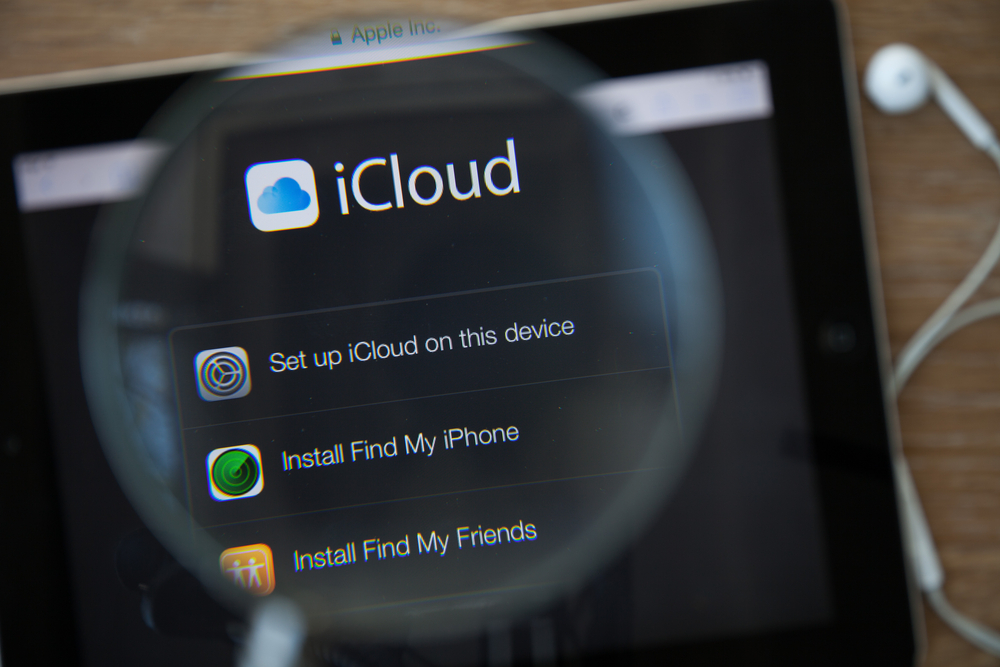iCloud? It's all a bit nebulous
The use of the term iCloud to describe Apple's new sync service is going to lead to confusion

Sign up today and you will receive a free copy of our Future Focus 2025 report - the leading guidance on AI, cybersecurity and other IT challenges as per 700+ senior executives
You are now subscribed
Your newsletter sign-up was successful
I suppose this is one of those product names that was just waiting for the right moment to land.
Steve Jobs' use of 'iCloud' as a description of a mobile device sync service (MobileMe was the precursor, it's not that new) is so far away from the definition of cloud that we all live with every day, that fitting it into the same set of concepts feels rather alien. Apparently, iCloud is "just like the cloud should be" (because it's seamless, allegedly), which to me suggests that lots of other cloudy-type things are somehow comparatively inadequate.
Except that, of course, this isn't a cloud service as we would understand it at all. The thing that has Jobs waxing eloquent - the seamlessness - isn't on-demand, because there's no opting out or controls - after all, if you're controlling what and when to replicate (because you are "demanding" it), that's not a seamless process any more, is it.
Then there's the small matter of a closed standard. The original concept of cloud by Ozzie, Maritz, Greene and friends, emphasised open architectures, so that your work could be shopped around an open marketplace of compute providers. The only open marketplace available within iCloud is the one for data roaming, when you don't have a clean connection to your iPhone's home network company.
Whatever iCloud does for the iOS user base it's certainly not helping us with our problem of explaining what a cloud is, or isn't, for our customers.
This is, in short, a taxonomy problem. That's the word that describes collections of words used to define a broader concept. Increasingly, the word "cloud" in the consumer marketplace is drifting further and further away from the word "cloud" in business. This isn't a trivial matter - the background sources that people use to make decisions include their mates down the pub, and what the BBC have to say, and what grandma jokes about in that weekly phone call.
I've long maintained that Google Docs isn't a "cloud" application (where's the portability? Where's the marketplace?). What I mostly get back when I propose this idea is that slightly sidelong look, the one that means "humour him at least until I get near the door".
Sign up today and you will receive a free copy of our Future Focus 2025 report - the leading guidance on AI, cybersecurity and other IT challenges as per 700+ senior executives
It may seem peculiar to move in only four paragraphs from a technical objection, to the thoroughly non-technical business of names and jargon - but cloud is showing signs of being the lowest of the low when it comes to rigour in conversational application.
Only this week, a well-respected technical journalist said to me "I've been looking at this cloud thing for a few days and I think I want some of it - so should I buy Windows Home Server?” Now, you can chortle at that, or you can admit that this kind of definition creep has all the makings of a crisis in confidence of epic proportions. Every time a low-grade web host starts dropping people's data on the floor as part of their "cloud" product portfolio, everyone suffers, right up to the nuclear-strike-proof multiply redundant independently powered hardened repositories, who are selling under the same banner.
It is however, no good complaining without offering a solution. It's also no good listening to people finding their way through an increasingly self-service-orientated technology business, and greeting their well-intended efforts with a curled lip and a flat negative. "No, you have got that wrong" just means they will go to someone else for their advice.
Accordingly, I would like to leave you with the very useful word "nebulous". It means, literally, "cloudy" - but it is more abstract, more highfalutin. Where "cloudy" has a pretty direct relationship with poor visibility and drops of water, Nebulous is a step back, a reference to cloudiness without actually directly connecting with clouds; a cloud; or "The Cloud", itself.
So when someone points to their £200 home media server and says "I chose that for my cloud" you can say "Hmm, that's a bit nebulous". When someone waves their iPhone at you and shows you another picture of their dribbling baby to demonstrate mastery of The Cloud, you can say "yes, connected rather nebulously" - and if they are going to feel offended, at least you will have had enough time to get away.
-
 Salesforce targets telco gains with new agentic AI tools
Salesforce targets telco gains with new agentic AI toolsNews Telecoms operators can draw on an array of pre-built agents to automate and streamline tasks
-
 Four national compute resources launched for cutting-edge science and research
Four national compute resources launched for cutting-edge science and researchNews The new national compute centers will receive a total of £76 million in funding